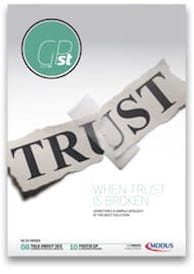IT is the big decision all would-be GPs have to make as the end of their training draws near – what do I want to do next?
My training was coming to a close in August 2011 and I knew I wanted a role that gave me some control over where and when I worked. I took the plunge and embarked on the rather daunting process of becoming a GP locum.
For the first time in my life I faced the real implications of not having a permanent job and was without the reassuring support of a consultant or GP trainer. A steep learning curve lay ahead of me and I was extremely nervous. No lecture or tutorial would prepare me for world of locuming.
Two months before my GP training ended I had successfully passed all my exams so I applied for a place on my local health board’s GP performers list. I hadn’t updated my CV since I applied for training three years previously and a lot had changed in that time. I asked my GP trainer and practice manager to check my final draft and I would urge you to seek similar advice.
Once my CV was sent out, a steady flow of emails and calls came in asking about my availability to work – a good diary is a must.
Unlike other GPs, locums don’t benefit from a fixed group of peers so it is a good idea to join a local locum group. I found mine extremely helpful for sourcing long-term jobs along with regular peer group learning. It’s also a good way to meet new people. The group I joined organised teaching and support sessions from the health board, explaining the various computer software packages used by GP surgeries in the area. It’s important to familiarise yourself with the different systems in your area as it will make your surgeries run more smoothly.
One of the good things about locuming is the ability to work in a variety of practices, from rural to urban, sometimes even returning to the same practices for regular sessions. But one frustrating element of the job is the lack of continuity of care and patient follow-up that comes with moving from practice to practice. To counter this, whenever I came across anything interesting I took a note of it and either rechecked the notes if I was working back in that practice or emailed the practice manager. They were extremely cooperative and helped me write up case-based discussions or significant events for my annual appraisal.
Here are a few tips for starting out as a locum GP:
• Ask yourself how long you would like to work as a locum: is this simply an interim arrangement allowing you to research different practices you might like to join on a permanent basis or are you considering making a career of this to facilitate an overall portfolio career?
• Allow for a quiet period when first starting out (around two to three months) as it will take time to get yourself known as well as getting yourself and your systems organised without too much other pressure. Perhaps diarise how many sessions per week you will be prepared to work in the initial period. Also be aware that work may not be available consistently throughout the year so plan ahead for the lean times.
• Keep on top of your paperwork and record all jobs done as well as basic recording requirements for tax returns, expenses and pensions. Some of these will require daily attention and some monthly. It might be worth hiring an accountant for more complex jobs like end-of-year tax returns.
• Good medical record keeping is crucial for all doctors but especially for locums due to the lack of continuity of care. When using clinical computer systems, ensure your entries are identifiable. Locums are not always given their own login so it might be necessary to add your name or initials to the notes you have made. It’s also important to link in with existing systems for the practice you are working in to ensure matters such as referrals and test follow-ups are completed in your absence. A thorough handover of key tasks when leaving a practice is another important measure. It can be useful to note your planned next step of treatment to allow other doctors to pick up where you have left off.
• Keep up-to-date professionally throughout the year and record learning events you have attended. It will make your life a lot easier when it comes to your annual appraisal.
• Find out more information from the National Association of Sessional GPs – www.nasgp.org.uk
On the whole, I have found working as a locum GP to be a positive experience. It offers the freedom to choose, generally, where you want to work and for whom. Given the bureaucracy and scrutiny that affect static GP surgeries, being a locum can be a liberating experience allowing you to practise medicine without much of the administrative angst.
Peter Livingstone is a GP and editor of GPST
This page was correct at the time of publication. Any guidance is intended as general guidance for members only. If you are a member and need specific advice relating to your own circumstances, please contact one of our advisers.
Read more from this issue of Insight Primary

Save this article
Save this article to a list of favourite articles which members can access in their account.
Save to library


